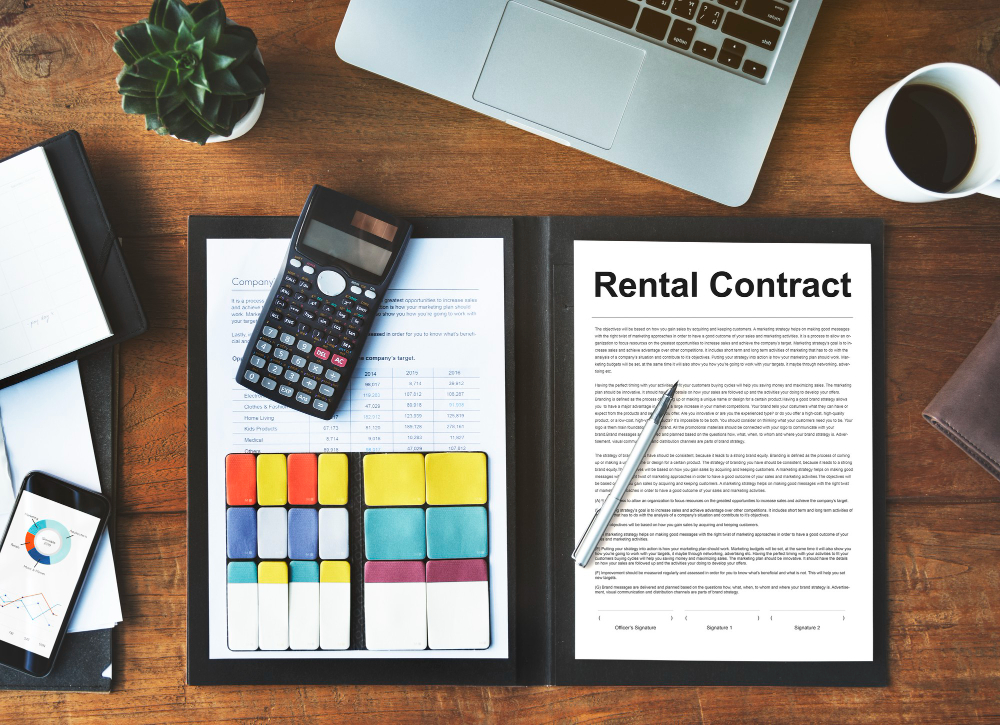Jumping into the Canadian short-term rental (STR) market – think Airbnb and VRBO – is exciting. But there’s one thing you can’t skip if you want your STR to succeed: tenant screening. It’s not just a good idea; it’s a must to avoid damage, legal headaches, and guests you’d rather not have.
This guide covers why tenant screening is crucial for short-term rentals. We’ll walk you through the Canadian rules so you can protect your property, sleep soundly, and safeguard your investment.
Understanding Canadian Short-Term Rental Regulations
Before you even think about welcoming guests, you need to know the rules. Short-term rental tenant rights and responsibilities vary across Canada, so it’s crucial to understand what’s at play in your area. STR regulations in Canada are a real mixed bag. They can vary wildly from place to place, like planning a road trip across the country – each stop has its own set of rules. Those rules change not just between provinces, but even within the same city.
Provincial and Municipal Rules
It starts at the provincial level – Ontario, British Columbia, Quebec, Nova Scotia – each has its own rules for STRs. But the real specifics are often handled by cities and towns. Cities like Toronto and Vancouver tend to have tougher rules than the provinces they’re in. This means:
- Licensing: Many places require you to get a license to legally run an STR. This usually involves fees, inspections, and following specific guidelines.
- Zoning: Make sure your property is zoned for short-term rentals. Zoning laws control how land can be used; running an STR where it’s not allowed could mean fines or being shut down.
- Taxation: You must collect and pay taxes on your rental income. This includes Provincial Sales Tax (PST), Goods and Services Tax (GST), or Harmonized Sales Tax (HST), depending on where you are. Don’t mess this up!
Key Cities with Strict Regulations:
Big cities like Toronto, Vancouver, and Montreal are known for having the strictest STR rules. They may require a license, limit how long you can rent, and do other things related to short-term rentals for tenant staging. Before you list, do your homework and follow local bylaws. Failing to do so is risky.
Legal Requirements
You have to check your guests’ IDs and collect the right taxes. Guests need to show valid ID, and you need to keep records to prove you’re following the law. This is critical to stay out of legal trouble.
Essential Tenant Screening Steps for Short-Term Rentals
Now, let’s dive into short-term tenant screening. Consider it your pre-flight check for a smooth rental experience. By properly vetting your guests, you can avoid common problems.
A. Identity Verification
- Why it’s Key: This is your first line of defense. Verifying guests’ identities helps prevent fraud and other illegal activities. Think of it like checking the pilot’s credentials before the plane takes off.
- How:
- Government-Issued IDs: Always get a clear copy of a valid ID. Driver’s licenses, passports, or other government-issued cards are all good. This confirms who they are.
- Third-Party Services: You can use services like Autohost or Superhog for background checks and identity verification. These platforms lower your risk by thoroughly vetting your guests.
B. Booking Platform Reviews & Ratings
Platforms like Airbnb and VRBO offer plenty of reviews from other hosts. These reviews can help you assess guests’ reliability and past behavior.
- Negative reviews about damage, noise, or rule-breaking.
- Last-minute cancellations might signal unreliability.
- Comments mentioning rule violations could indicate future issues.
C. Communication & Guest Vetting
- Ask the Right Questions: Talk to potential guests ahead of time. Find out:
- Why they staying – vacation, business, something else?
- How many people will be there?
- Why they chose your property?
- Spotting Suspicious Behavior:
- Vague or sketchy answers. Something incomplete or unclear might mean they’re hiding something.
- Refusing to provide details. Trust your gut. If something feels off, it might be.
D. Security Deposits & Rental Agreements
A clear short-term rental agreement is your best legal friend. Include details like check-in/check-out times, house rules, and consequences for breaking the rules. Don’t forget a reasonable security deposit to protect your property financially.
E. Background Checks (When Needed)
Sometimes, a background check might be necessary for long stays or situations that might seem risky. Follow privacy laws in Canada, such as PIPEDA, and make sure you have the guest’s consent before proceeding.
Complying with Privacy Laws (PIPEDA & Provincial Laws)
Protecting personal information is serious business in Canada. The Personal Information Protection and Electronic Documents Act (PIPEDA), along with provincial laws, controls how you collect, use, and store guest information.
- How to Do it Legally:
- Be Clear: Tell guests why you need their info.
- Get Consent: Ask for their permission before collecting things like their ID or doing a background check.
- Keep it Safe: Store all info on secure platforms and encrypt it.
- Best Practices:
- Only Collect Necessary Information: Don’t ask for more than you need.
- Keep Data Secure: Protect guest data from unauthorized access.
- Proper Disposal: Have a plan to delete info when you no longer need it.
Handling Problematic Guests & Disputes
Even with excellent screening, issues can happen. Here’s how to deal with them:
- If a Guest Breaks the Rules:
- Document Everything: Take pictures, videos, and keep detailed notes.
- Communicate: Talk to the guest calmly and directly.
- Follow the Agreement: Remind them of the rules and the consequences.
- Legal Action and Insurance:
- You might need to call the authorities or evict the guest (depending on the situation and local laws) if they refuse to cooperate.
- Make sure your insurance covers you. Find policies designed for short-term rentals.
Tools & Services for Effective Tenant Screening
Luckily, there are lots of tools to make tenant screening easier. Here are a few Canadian-friendly options:
- Autohost: Good for verifying IDs and comprehensive guest screening.
- Superhog: Another good option for screening guests and potentially providing insurance coverage against property damage.
- Smart Locks and Security Cameras: These add extra security.
- Smart locks give keyless entry.
- Security cameras can deter issues.
- Be open and honest with guests about these things to respect their privacy
The goal of tenant screening for short-term rentals is to protect your investment. And, just as importantly, your peace of mind. With the right steps, you can:
- Reduce Property Damage: Fewer damages mean lower costs.
- Avoid Legal Problems: Follow the rules.
- Minimize Problematic Guests: Create happier renters.
- Protect Your Earnings: Safeguard your hard work.
It’s all about balance. You want to provide a great guest experience without risking your property.
Key Takeaways:
- Know the Law: Stay up-to-date on the laws in your area.
- Screen Carefully: Use ID verification, platform reviews, and good communication.
- Protect Yourself: Use security deposits, clear rental agreements, and get the right insurance.
In conclusion, tenant screening is essential for anybody entering the Canadian short-term rental market. By following appropriate procedures like verifying identities, checking reviews, communicating effectively, and securing clear rental agreements, you’ll be able to secure your property and ensure a positive experience for both you and your visitors. Staying informed about local regulations, following to privacy laws, and using tools like background checks and security measures will help you minimise risks such as property harm, legal complications, and tricky tenants. Ultimately, successful tenant screening not as it were, safeguards your investment but also contributes to smoother operations and a more enjoyable rental experience for everybody involved.





